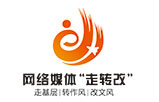Tough competition squeezes agri-market
By Wu Yong in Tieling, Liaoning, and Han Junhong in Changchun (China Daily) Updated: 2012-11-02 11:22
Rising competition and frequent freaky weather are forcing multinational agricultural companies to step up their research efforts in China.
One such company is DuPont Pioneer, a wholly-owned subsidiary of DuPont and one of the world's major companies engaged in developing and supplying plant seeds.
Laying claim to about 25 percent of the global hybrid corn seed market and a considerable market share in China, the company said it would double its research investment in the country to meet the challenges over the next few years.
In China, DuPont Pioneer is known for its success over the past six years based on sales of its corn seed, branded Xianyu 335 or XY335. Last year, XY335's planting area was 3.3 million hectares, or 9 percent of the country's total corn acreage, according to the company.
"China is one of our most important markets in the world and it continues to grow," said Paul E. Schickler, president of Pioneer. The company's investment plan is a reflection of its recognition of China's significance and belief in the country's positive business climate, he said.
Schickler said the company would continue to base its China strategy on quality products and services, "no matter what difficulties and obstructions lay ahead".
Schickler said the company plans to open several research locations to provide support for local business by 2017. Currently it has built seven research facilities in China, centered around breeding activities and technologies.
Pioneer's aggressive bet on China comes from its knowledge about the country's growing appetite for corn, driven by its ever-increasing meat demand. Statistics from the Ministry of Agriculture show that in 2011 the country planted more than 33.3 million hectares of corn, mainly as animal feed, and the output reached 192.8 million metric tons, accounting for 33.7 percent of its overall grain harvest.
Industry insiders estimate that China's corn seed market is worth more than $8 billion and will continue to expand.
At the same time, Pioneer has been facing increasing competition in the last couple of years, along with complaints about crop losses in extreme weather conditions.
One competitor is the Danyu Seed Company. "Some people say China's corn seed industry is very fragile and vulnerable to foreign companies, I just don't agree," said Jing Xiqiang, chairman and general manager of Danyu, a seed company based in Liaoning province.
"We are as experienced in hybrid maize breeding as any international competitor. We can provide customized services and products catering to different climate and soil," Jing said.
At present, Danyu takes the lion's share of the market in Liaoning, one of the main granaries of China, and provides some 20 strains of corn seeds for farmers around the Bohai Sea. Jing said he is preparing for the public offering of his company's shares and even setting up an office in the United States to keep up with the latest research.
Increasingly frequent extreme weather conditions and pest outbreaks have given rise to doubts among Pioneer's potential customers.
Some local media alleged that Pioneer was responsible for the loss caused by an armyworm outbreak in some parts of northern China this year. Pioneer claimed that the charges are "all groundless".
Sources close to Pioneer said it may have something to do with the slow process of getting new products registered, a process that usually takes a minimum of four years.
Jiang Kun, Pioneer's dealer in Jilin's Shulan city, admitted facing fiercer competition from other companies. But he said he would stick to Pioneer because doing business with farmers "needs extra assurance".
Zhou Huiying in Harbin contributed to this story.
Contact the writer at wuyong@chinadaily.com.cn
- Ford's China sales up 7% from January to April
- Yiwu-Madrid train line boosts China, Europe trade
- China's central bank pumps more money into market
- China's economic reform sets example: Russian expert
- Top economic planner vows to stabilize private investment
- China's supply-side reform to help sustain growth: UBS
- Pork price controllable: MOC
- China to shake up 2,000 year state salt monopoly

















